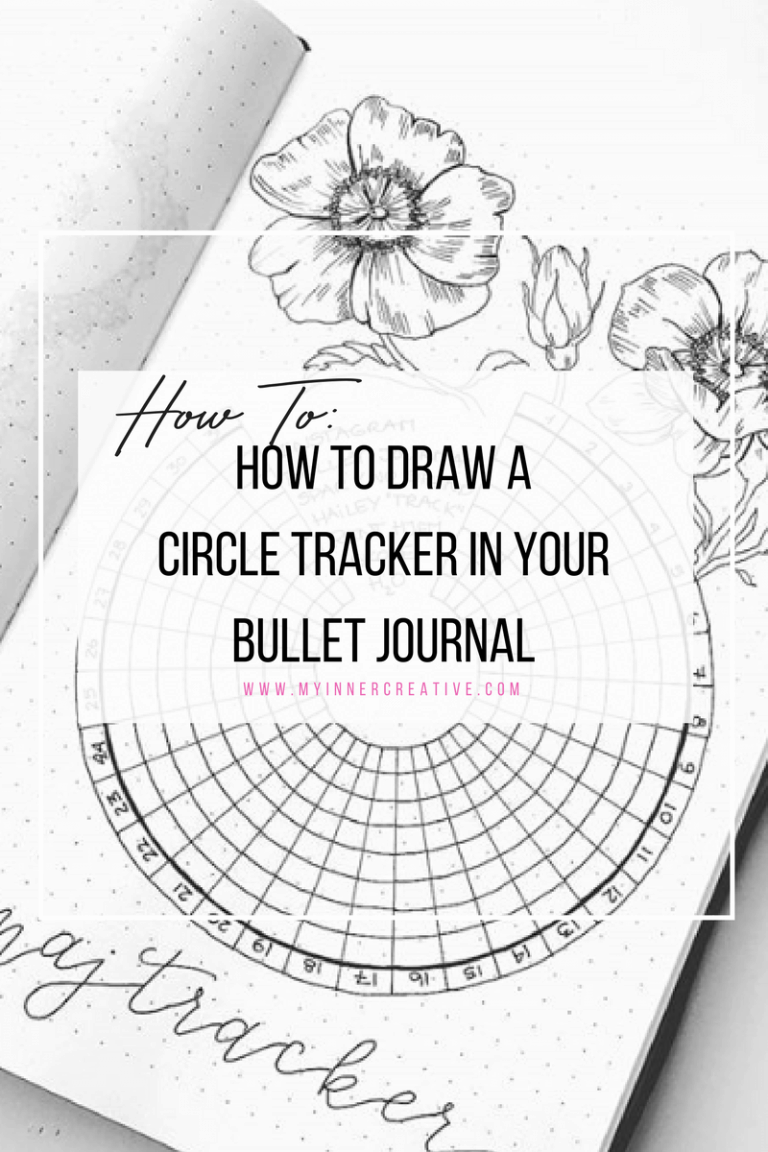5 reasons tracking habits in your bullet journal is NOT helping you!
Tracking habits in a bullet journal has gained popularity as a productivity and self-improvement technique. However, there are instances when this method might not yield the expected results. In this blog post, we will explore five reasons why tracking your habits in your bullet journal might not be as effective as you hoped.
We spend so much time talking about tracking your habits in your bullet journal and yes, for some this might be great! But, for others, it might just add to the overwhelm of starting with the Bullet Journal Method.
The reason I decided to discuss this topic was because (and if this was you reading this – please it is not meant as a dig but an illustration of my concern) I saw on a facebook page, someone asking what to track in their bullet journal, there were tons of examples and the person went off and tracked ALL the examples.

I finished reading the thread IN SHOCK! How could tracking all the suggestions be helpful at all, and have we gotten to a point where the needle is starting to hit the “extreme caution” part of life? There was zero way that poor person was ever going to succeed, and at one point she even questioned by she should track her alcohol intake, when she doesn’t drink.
It was so obvious this wasn’t sustainable and I decided this would be the perfect opportunity to talk about some of the reasons you might want to reconsider your habit tracking in your bullet journal or planner and why a refresh might be in order!
If you want some amazing tracker spreads, of if you are wondering “what is a habit tracker?’ you can check out our other bullet journal habit tracker posts here
Questions that we get regularly about habit trackers include:
- What is a habit tracker?
- What should I track in my habit tracker?
- Where should I write my habit tracker?
- How can I add things to my habit tracker?
- How do I make a habit tracker?
While these are all valuable questions, what they are focusing on is the habit, and not always the task or behavior leading to the habit you want to change. Thinking about what to include can feel really overwhelming and I get it, especially when you are starting out, you want to feel productive and in control.
*Please note that if you have been given a directive from a medical professional to track certain things, this does not replace their recommendation and is solely an opinion piece.
1. Your bullet journal habit trackers are focusing on the wrong things
When we start analysing what habits we should track in our bullet journal we can go down a number of rabbit warrens!
We open this up for discussion, starting with Craig Anderson, owner of Appliance Analysts who agrees with my sentiment of focusing on the wrong things through tracking, he goes on to say;
Tracking your habits can be a great goal – but it’s not always helpful. It can lead you to focus on the wrong things. Developing a habit is about striving to be a better person – but sometimes we focus too much on the act itself and lose sight of our bigger picture.
The solution is to make sure you’re tracking for right targets. Think about any pitfalls you may stumble into before you commit to a new goal.
I think for me what makes this relevant is that often we are so focused on say tracking hours of sleep, that we lose sight as to why we are tracking our sleep in the first place.
Bullet journals have gained popularity for their structured approach to organization and goal tracking. However, when it comes to habit tracking, one of the potential pitfalls is the lack of flexibility within this structured framework. While the structure of a bullet journal can provide a sense of order and discipline, it might not always align well with the realities of life’s unpredictability. Here’s why having flexibility in your habit-tracking system is crucial for long-term success:
Life is Unpredictable: Life rarely follows a perfectly planned path. Unexpected events, emergencies, work commitments, and personal responsibilities can disrupt even the most meticulously designed routines. When your habit-tracking system is rigid and doesn’t account for these disruptions, you might find yourself struggling to keep up with your habits. This can lead to feelings of frustration and discouragement, ultimately derailing your progress.
The Danger of All-or-Nothing Thinking: Rigid habit-tracking systems can promote an all-or-nothing mentality. If you miss a single day due to an unforeseen circumstance, you might feel tempted to abandon the entire habit-tracking process. This black-and-white thinking can be counterproductive and hinder your ability to build sustainable habits over time. A more adaptable approach allows you to acknowledge setbacks without completely giving up on your goals.
Adaptation is Key to Long-Term Success: Successful habit formation requires adaptability. Instead of aiming for perfect adherence to a fixed routine, consider adopting a mindset that emphasizes consistency over rigid adherence. When unexpected events disrupt your plans, having a flexible system allows you to adapt and modify your approach without feeling defeated. This adaptability is a key factor in maintaining your momentum and progressing toward your goals.
Tailoring Your System to Your Lifestyle: Every individual has a unique lifestyle, with varying commitments, responsibilities, and priorities. What works for one person might not work for another. An effective habit-tracking system should be tailored to your specific circumstances. This means designing a system that accommodates your daily routine, work schedule, family commitments, and personal preferences. Flexibility enables you to integrate habit tracking seamlessly into your life rather than trying to fit your life into a rigid tracking system.
Finding a Balance: Flexibility doesn’t mean abandoning structure altogether. It’s about finding a balance between structure and adaptability. You can create a framework that provides a foundation for your habits while also allowing room for adjustments. For instance, setting a range of acceptable times to complete a habit rather than a fixed time can provide the necessary structure while accommodating changes in your schedule.
SOLUTION: Think about what you are currently tracking, is it working or are you focusing on the wrong goals? Rethink your goal setting strategies!

2. Tracking Habits in your bullet journal, itself is not enough for behavior change
Dr. Mike Bishop Founder, Summerland Camp Track at Camp Pocono Trails, talks to use about his learnings from coaching young adults;
I would argue that tracking behaviors alone is not sufficient enough for sustained behavioral change. While the tracking of behaviors is the only commonality that behavior change experts can agree on, how behaviors is tracked and the goals set are often quite different, depending on which expert you speak with.
For example, any major weight loss method involves tracking. Atkins requires you to track carbs. Weight Watchers requires tracking of calories. Other diets track portions, such as Richard Simmons “Deal a Meal.” Some diets track only fat grams. The one thing all diets require however is tracking.
Bishop goes on to talk about how we can manage tracking behaviors in your journal;
When the daily tracking is linked to big picture items, the motivation to stay on track helps create long-term success.
We’ve found it helpful to journal as you track behaviors. Write down your hopes and dreams, the idealized “you” that you are trying to become. Keep these thoughts in mind as you work each day to become a healthier, happier person.
I think what is an important takeaway here is, that we are very often tracking actions and tasks, and not modifying the behavior that leads to the negative activities and tasks.
SOLUTION: Strip back what you are tracking, and determine which ones are linked to negative behaviors and which ones are merely just negative tasks. Once you determine which is which you will be able to set goals and trackers that help you achieve sustained behavior change.

3. Tracking habits might become obsessive
Morgan Taylor, Finance Expert & CMO for LetMeBank, talks about how tracking your habits could lead to obsessive and destructive behaviors;
Generally, having data is helpful for coming up with a game plan. However, tracking personal habits in an effort to change habits could be counter productive, because it can create obsessive behaviors – diet restrictions, rep or step counts, or calorie counting. These behaviors could cause lasting problems from body breakdowns to mental disorders. Tracking habits can leave an individual with low self esteem if they don’t meet strict goals created through unrealistic expectations.
SOLUTION: If you notice you are becoming more and more obsessive about tracking your habits in your bullet journal and you note down the line that these are not working for you, evaluate them. If they are things you wouldn’t usually track, but are tracking them because you saw someone else tracking them in their bullet journal, even more reason to reevaluate them!

4. Tracking habits in your bullet journal can make you feel like a failure
Stacy Caprio, Life Coach talks about how tracking habits detracts from action doing the habit;
Tracking your habits can get in the way of actually committing to the process of doing them and make you feel you have failed if you mess up even one time. It’s better to stay in the moment and gently correct yourself if you feel you cross the line on a habit or aren’t doing what you’re supposed to be doing. This way you don’t feel like you’ve failed every time you mess up once, and you’re more in the moment as opposed to tracking and watching yourself from the outside.
Lilia Manibo, a writer and editor at Anthrodesk, agrees with this notion and adds;
For some people, tracking habits can be a way to be productive. Also, it can be time-consuming. Of course, you will have to spend some time on the instances of having your habits tracked. Instead of delegating the time to other tasks, it will be spent on how you track and evaluate your habits and actions.
It can also be a reason for you to lose self-esteem and confidence. You can be disappointed or frustrated when after tracking your habits, you will found out that you fail. You might have set goals but then you failed. It can affect your mindset and it can trigger you to lower your motivation.
Andrew Alexander is the Author of The Cure for Happiness: Timeless Secrets to a Stress-Free Life & Deconstructing Motivation: How to Effortlessly Motivate Yourself to Do Anything in Life; and talks about how not having the right tools in place to support your behavioral change when tracking habits;
When you are stuck with a bad habit and not working with a professional coach or psychologist, you really lack the tools to make the changes you are looking for. When you want to change, but are unable to do so, you start blaming yourself, judging yourself, and it really builds up the negative emotions associated with this.
For example, you are overweight and you’re really struggling to eat healthier. You binge eat, you regret it later, and you continue to feel sad. From an emotional health standpoint, the solution for this is to replace the self-judgement with self-love and unconditional acceptance. By telling yourself that it’s OK to have this habit and understanding that it’s a normal part of being a human, this practice alone really helps set the stage for not being dragged down by it.
Being dragged down about feeling unaccomplished with those habits and tasks is a read downer, and if you notice that you are losing motivation when you do not complete tasks then reconsider how you display the trackers in your bullet journal.
In the pursuit of self-improvement and habit formation, it’s not uncommon to fall into the trap of perfectionism. While aiming high and setting standards is admirable, an overemphasis on perfection in habit tracking can actually hinder your progress rather than enhance it. Let’s delve into the downsides of perfectionism in this context and explore how prioritizing progress over perfection can lead to more sustainable and fulfilling results:
The All-or-Nothing Mindset: Striving for perfection often leads to an all-or-nothing mindset. When you set rigid expectations for yourself, the moment you deviate from your plan, even for a single day, you might feel as though you’ve failed entirely. This mindset doesn’t account for the complexities of life, where setbacks and disruptions are inevitable. Missing a day or breaking a streak doesn’t mean you’ve undone all the progress you’ve made so far.
Demotivation and Abandonment: Perfectionism can be demotivating. When you place excessive importance on flawless execution, the moment you encounter a hiccup, you’re likely to feel disheartened and frustrated. This demotivation can lead to abandoning your habit-tracking efforts altogether, as the idea of starting over from scratch might seem less daunting than trying to achieve perfection once again.
The Value of Incremental Progress: Progress is the heart of habit tracking. The journey towards forming a new habit is about consistent effort and incremental improvement. Each day you engage in your habit is a step forward, regardless of whether you maintain a flawless streak. By focusing on progress, you recognize that improvement doesn’t always happen linearly and that setbacks are opportunities to learn and grow.
Building Resilience Through Setbacks: One of the most powerful lessons habit tracking can teach you is resilience. Life is filled with challenges, and setbacks are an inevitable part of any journey. When you miss a day or face obstacles, it’s not a failure; it’s a chance to practice resilience. Embracing imperfections and setbacks helps you develop the mental strength to persevere despite difficulties, ultimately leading to more sustainable long-term habits.
Shifting the Perspective: To overcome the trap of perfectionism, it’s essential to shift your perspective. Instead of fixating solely on maintaining an unblemished record, focus on the bigger picture. Acknowledge the effort you’re putting in, the progress you’re making, and the positive impact your habits are having on your life. Celebrate your successes and use your challenges as opportunities to learn and adapt.
Celebrating Small Wins: Every step you take towards your goal is a small win worth celebrating. Recognize that even if you miss a day, you’ve still achieved a series of successful days leading up to that point. By acknowledging your achievements, no matter how small, you reinforce positive behavior and motivation to continue.
Solution: Reconsider how you display your habit trackers in your bullet journal. Is it showing you that you haven’t done something for 3 weeks? Then it probably isn’t something you should be tracking, but, as above, rather consider the behavior leading to the inactivity on the habit you are trying to track.

5. By Tracking habits you may lose the ability to self reflect
Michae Sebastianl, a CMO of skyscraperseo.com talks us through how habit tracking causes us to lose sight of what we are actually trying to achieve and removed our ability to consider other options;
Tracking our habits motivates us to become a better person. But somehow it could not be helpful to us because we tend to focus on those things ONLY, we also become slaves to ourselves just because we are tracking these habits we are forced to follow it, Our scope for thinking and creativity is limited because we restrict ourselves from doing other things,we never learn and explore new things.
When there is a need for adjustment or change in the routine we easily get distracted we think that this thing has to be done and lastly, it interferes with our other activities just because you are tracking your habits you may not be able to do this or that. Your actions become dependent on what you should do and these can affect so much of our mental health since we become to focus on tracking our habits we become self-conscious that could lead us to having anxiety and from there it will already affect our state of being; Physically, Mentally and Emotionally. It will worsen our life to be better.
When you rely on a list of things to tell you how you are going, you might miss some of the more important things. For me, and I’ll be honest, I’ve been tracking my mental health and tricks to improving it, but I was so focused on those metrics that I didn’t notice that I had put on 15kg!
Habit tracking is more than just the act of recording checkmarks or completing tasks on a list. It’s a dynamic process that involves self-awareness, growth, and adaptability. One key aspect that can elevate your habit-tracking journey is reflection. Taking the time to reflect on your progress, successes, challenges, and emotions can provide a deeper understanding of your habits and help you make meaningful adjustments. Let’s explore why reflection matters and how it can enhance your habit-tracking experience:
Moving Beyond Superficial Completion: Recording checkmarks is the surface-level aspect of habit tracking. While it offers a sense of accomplishment, it doesn’t capture the nuances of your journey. Reflection takes you beneath the surface and encourages you to explore the “why” behind your habits. Why did you succeed on certain days and struggle on others? What external factors influenced your progress? Reflecting on these questions allows you to uncover patterns and insights that might otherwise go unnoticed.
Gaining Insights into Your Triggers and Patterns: By regularly reflecting on your habit-tracking experiences, you can identify triggers that affect your behavior. Triggers can be external (such as certain situations or environments) or internal (such as emotions or thoughts). When you recognize these triggers, you gain the power to address them proactively. For example, if you notice that stress consistently leads to skipping your habit, you can develop strategies to manage stress more effectively.
Recognizing Your Progress and Achievements: Reflection provides an opportunity to celebrate your successes, no matter how small they may seem. Over time, progress can be gradual, and you might not notice the changes unless you intentionally reflect. By acknowledging your achievements, you reinforce positive behavior and motivation. This positivity can fuel your desire to continue and strengthen your commitment to your habits.
Adjusting Your Approach for Better Results: Habit tracking isn’t a one-size-fits-all process. What works for one person might not work for another. Regular reflection allows you to assess whether your current approach is effective or if it needs adjustment. Maybe you’ve discovered that a certain habit isn’t as impactful as you thought, or perhaps you’ve found a more efficient way to integrate the habit into your routine. Reflection empowers you to tweak your strategy for better results.
Cultivating Self-Awareness and Mindfulness: Reflection cultivates self-awareness and mindfulness—the ability to be present and conscious of your actions and thoughts. By engaging in reflective practices, you become attuned to your thoughts, feelings, and behaviors in relation to your habits. This awareness helps you make intentional choices and avoid falling into auto-pilot mode, leading to more purposeful habit-building.
Practical Tips for Reflection:
- Designate Time for Reflection: Set aside a specific time each day or week for reflection. This could be during your journaling sessions, at the end of the day, or on a designated “reflection day.”
- Ask Meaningful Questions: Ask yourself questions that encourage introspection. What went well today? What challenges did you face? How did you feel while engaging in your habit? What did you learn about yourself?
- Keep a Reflection Journal: Maintain a separate section in your bullet journal for reflection. Write down your thoughts, insights, and observations. This creates a record of your journey and allows you to track your growth over time.
- Experiment and Adjust: Based on your reflections, don’t hesitate to experiment with different approaches. If you notice a pattern of struggling at a certain time of day, consider adjusting your habit’s timing.
SOLUTION: Don’t pigeonhole yourself into a list of trackers in your bullet journal that might not actually work. Think about some more abstract things you could track, like number of compliments you recieved, times you stopped to have a mindfulness moment etc. Not everything is black and white with trackers and being aware of some of the traps you might fall into, will help you with a sustained change at the other end!
While tracking habits in a bullet journal can be a powerful tool for personal growth, it’s essential to be mindful of these potential pitfalls. By setting realistic goals, maintaining flexibility, prioritizing consistency, embracing reflection, and letting go of perfectionism, you can make habit tracking a more effective and sustainable practice in your self-improvement journey. Remember, the ultimate goal is progress, not flawless execution.







